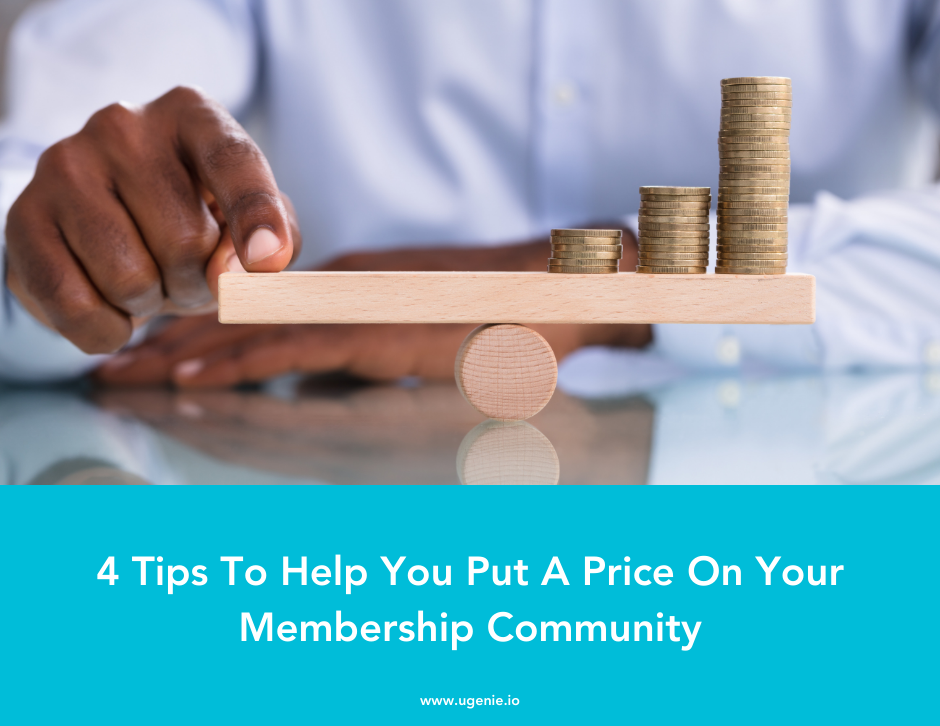How to Organise a Virtual Event: 7 Simple Steps to Get It Done
The digital age has taken a turn for the better with virtual events becoming a common occurrence, especially since the pandemic. It's a great way for people to connect and socialise without having to leave their homes. What's even better is that it's possible to reach larger audiences due to the fact that everything is now available online, as opposed to being confined to a small event space that can only accommodate a limited amount of people.
With the pandemic resulting in a rapid digitalisation, the utilisation of virtual conferencing software has surged. This implies that you need to be at the peak of your game when running events as there are plenty of people making comparisons.
Virtual events are organised through social media and teleconferencing software, such as Zoom, Ugenie or Hopin to bring people together virtually. As virtual events become more popular, businesses have found new ways to use them as marketing tools.
A virtual event is a live online seminar or webcast that uses pre-recorded video or streaming content as its main medium of delivery. These events are an excellent tool for reaching your target audience and expanding your business’ reach while also increasing brand awareness and visibility.
In this blog post, we explore how you can organise a virtual event. Read on to know more!
What is a Virtual Event?
A virtual event is an online event where participants engage with each other in a live online setting via the internet. A virtual event can be part of a larger online or offline conference.
Virtual events that are streamed live online can be viewed by anyone, anywhere who has internet access and are a great way to engage your target audience and grow your business. Virtual events allow people to interact, share ideas, and network in a virtual environment.
A virtual event can be as simple as an online seminar or webinar, or it can be a more elaborate live experience that includes virtual tours, interactive polls, and audience Q&A.
7 Steps to create a powerful virtual event experience
Step 1: Define your event’s objectives
By clearly defining your objectives, you will be better equipped to plan a successful virtual event.
To do so, start by asking yourself the following questions:
- What is the main goal behind this event?
- What are we trying to accomplish?
- Who are we trying to reach?
- What are we trying to say?
- What are the benefits of this event?
- What is the primary objective of your virtual event?
- What do you want your virtual event to achieve?
- Do you want to generate leads?
- Do you want to build brand awareness?
- Do you want to increase your sales?
Knowing what objectives you want your virtual event to achieve will help you plan for success.
Step 2: Choose a platform
If you have an existing website, you already have the perfect platform to host your virtual event.
If not, then you’ll need to find a platform that’s right for you — and there are plenty to choose from. Some of the most popular are social media platforms such as YouTube Live, and LinkedIn Live Streaming, alternatively you have platforms dedicated to virtual events such as Hopin and Zoom. Alternatively, if you have a community of members, you can use the Ugenie livestreaming feature to broadcast your webinar to all of your members.
Step 3: Set a date and time
Your virtual event can be scheduled for any time during the year. But you have to make sure that you choose a date and time that works for your customers. You can also make your virtual event recurring so that people can come back and attend it every time it’s scheduled.
What time of day do you want your virtual event to take place? Do you want it to be during normal business hours, or would you prefer to host it at a time of day when most people aren’t working? It’s important to consider these factors when you’re scheduling your virtual event.
It’s also a good idea to check your calendar and make sure that you don’t have any other important events or appointments on the day you want to host the virtual event.
Step 4: Decide on your speaker(s)
If you’re hosting a virtual seminar, then you’ll need to decide on your speaker(s). A common mistake businesses make is to choose their speakers based on what they can offer — not what they can deliver.
If you choose your speakers based on what they can offer, then you’ll likely end up with people who don’t really add value to your event.
Decide on who you want as your speaker(s) based on what they can deliver. Your speakers should be able to provide your audience with value such as information, insights, or strategies.
Choose speakers who are well known in your industry, who have a large following, and can provide your customers with the type of content they want to hear.
Step 5: Produce the show
Once your virtual event is scheduled, it’s time to start planning the content. This will depend on the type of virtual event you’re hosting. - If you’re hosting a virtual seminar, then you’ll need to plan your talk, present your slides, and seek out a suitable location.
If you’re hosting a virtual webinar, then you’ll need to record a video and stream it through your chosen software. If you’re hosting a virtual tour, then you’ll need to plan your route, create the content, and get a suitable way of viewing the content.
Step 6: Promote your virtual event
If you want to see success from your virtual event, then you’ll need to promote it. This can be achieved through various digital marketing channels. You can use social media channels like Facebook, Instagram, and Twitter to reach out to your followers and encourage them to attend your virtual event.
You can also create web pages and blogs to host information about your event. You can even use email marketing to reach out to your subscribers and let them know about your event. You can also benefit from the scheduling feature of virtual event platforms such as Zoom, Facebook Live, and YouTube Live. These platforms allow you to schedule your event at a later date and time, and then reach out to your audience to let them know when your event will be taking place.
Step 7: Handle the logistics
The most important aspect of organising a virtual event is logistics. You need to consider each and every detail, right from the location of the event to the technology that will power it. Hosting a virtual event can be tricky if you do not take into consideration the logistics of it all.
Some of the logistics that you need to consider include: Finding a suitable location, choosing a communication platform, booking a room, hiring a videographer, and planning your event schedule.
Once you’ve got the logistics sorted out, you can focus on what really matters — the content! This is the most important aspect of the event, and you’ll have to make sure that you deliver on what you’ve promised.
The Benefits of Hosting a Virtual Event
Increased brand awareness - Virtual events help you build brand awareness amongst your target audience. When you host a virtual event, it is broadcasted live, which gives you the opportunity to reach a large number of people within a short span of time.
Generating leads and engaging with customers - With the growing popularity of virtual events, they’ve also become one of the best ways to generate leads and engage with customers. The number of people who attend virtual events is constantly on the rise thanks to the convenience that these events offer.
Strengthening relationships with affiliates and partners - Virtual events are a great way to strengthen relationships with affiliates and partners. You can invite them to participate in your virtual event and host it together with them. This will help you build stronger relationships with them and also strengthen your brand visibility.
The Challenges of Hosting a Virtual Event
Finding a date and time that works for everyone - The biggest challenge of hosting a virtual event is finding a date and time that works for everyone. This is because virtual events can be hosted at any time. This means that you have to decide on a date and time that is suitable for your customers as well as your affiliates and partners.
Finding a suitable provider - Another challenge of hosting a virtual event is finding a suitable provider. Since these events are hosted virtually, you need to find a suitable place to host them, as well as understanding how the tech works so you can guide attendees on best practices when joining the event.
The Final Word
Hosting a virtual event is a great way to build brand awareness, engage with customers, and strengthen relationships with affiliates and partners. Virtual events are challenging but worth the effort
Share this
You May Also Like
These Related Stories

Culture Building Strategies for Virtual Academies | Ugenie | Insights

How to Add an Event | Ugenie | uHubs: Leader Guide

